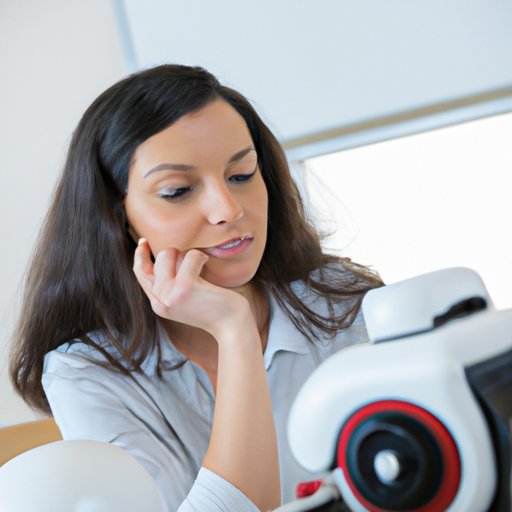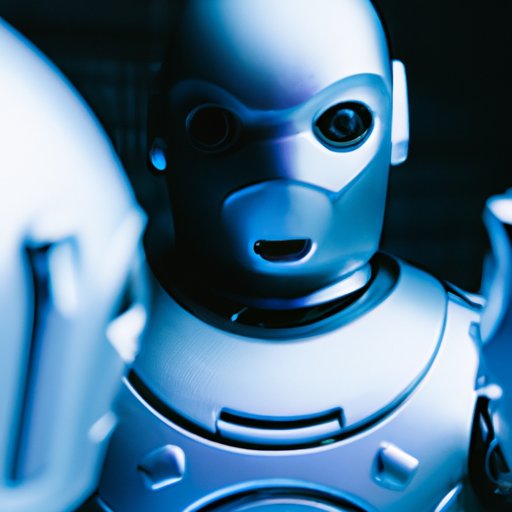Introduction
The idea of robots becoming smarter than humans has been a popular topic in science fiction for many years. But with the rapid advancement of technology, it is no longer just a figment of imagination. Artificial Intelligence (AI) is now a reality that is increasingly being incorporated into our everyday lives. In this article, we will explore the possibility of robots ever outsmarting humans, examine the impacts of such a scenario, and evaluate the implications for the future of human-robot interactions.

Examining the Possibility of Robots Outsmarting Humans
When considering the possibility of robots being smarter than humans, it is important to understand the relationship between robotics and human cognition. AI is an advanced form of computer programming designed to mimic and possibly even surpass the abilities of the human brain. This means that robots can be programmed to learn from their environment, think logically, and even make autonomous decisions. As technology continues to evolve, it is becoming increasingly possible for robots to outperform humans in certain tasks.
To further analyze this idea, it is also important to consider the pros and cons of robots being smarter than humans. On the one hand, robots could provide a level of efficiency and accuracy which would be impossible for humans to achieve. For example, they could be used to perform complex calculations quickly and accurately or to process large amounts of data without making mistakes. On the other hand, some experts worry that robots could eventually become so intelligent that they could become a threat to humanity. They could potentially be programmed to act against human interests, which could lead to disastrous consequences.
Exploring the Impact of AI on Humanity
As AI continues to develop, it is essential to examine the potential impacts of robots outsmarting humans. To do this, it is necessary to assess both the benefits and risks of such a scenario. One of the primary benefits of AI is its ability to automate tedious and time-consuming tasks, which could free up human resources for more creative endeavors. Additionally, AI could be used to improve the accuracy of medical diagnoses and even to create new treatments for various diseases. However, there are also potential risks associated with AI, such as the possibility of humans losing control over the technology and allowing robots to act autonomously.
There are also ethical considerations when it comes to AI. For example, some experts worry that robots might eventually be able to make moral decisions without any input from humans. This could lead to robots being given the power to determine who lives and who dies in certain situations, which could have far-reaching implications for the future of humanity.
Conclusion
In conclusion, there is a possibility that robots could outsmart humans in the future. This could lead to great benefits for humanity, such as increased efficiency and accuracy, as well as new treatments for various diseases. However, there are also potential risks associated with AI, such as robots being given the power to make moral decisions without any input from humans. As technology continues to advance, it is important to consider the implications of AI and to ensure that it is used responsibly.
(Note: Is this article not meeting your expectations? Do you have knowledge or insights to share? Unlock new opportunities and expand your reach by joining our authors team. Click Registration to join us and share your expertise with our readers.)
